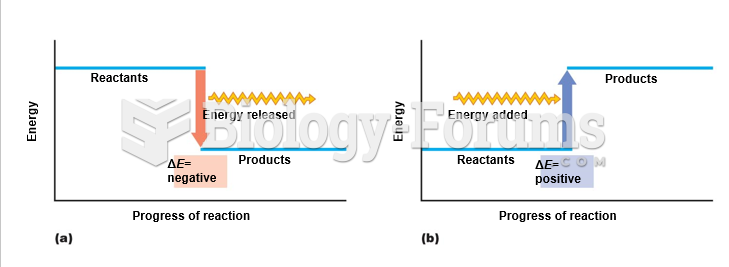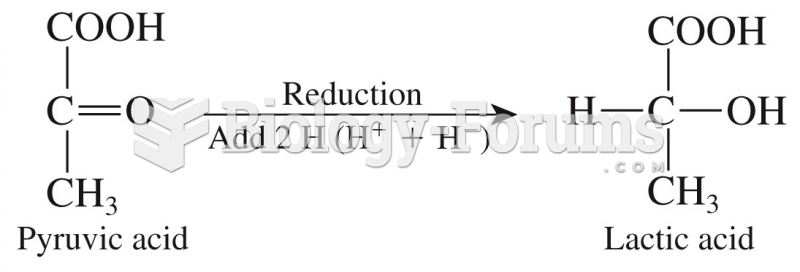|
|
|
The B-complex vitamins and vitamin C are not stored in the body and must be replaced each day.
People about to have surgery must tell their health care providers about all supplements they take.
More than 34,000 trademarked medication names and more than 10,000 generic medication names are in use in the United States.
There can actually be a 25-hour time difference between certain locations in the world. The International Date Line passes between the islands of Samoa and American Samoa. It is not a straight line, but "zig-zags" around various island chains. Therefore, Samoa and nearby islands have one date, while American Samoa and nearby islands are one day behind. Daylight saving time is used in some islands, but not in others—further shifting the hours out of sync with natural time.
Fewer than 10% of babies are born on their exact due dates, 50% are born within 1 week of the due date, and 90% are born within 2 weeks of the date.







